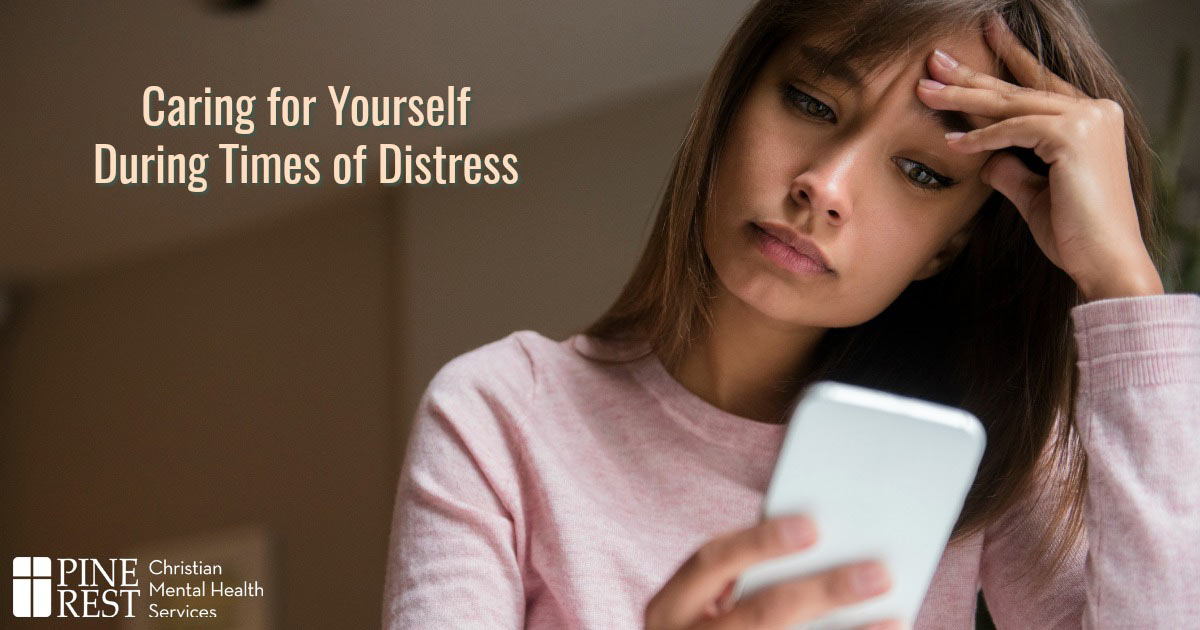Regular exposure to upsetting information can trigger symptoms that mimic post-traumatic stress disorder and anxiety. Some people refer to this as vicarious trauma. There's a benefit in following news about issues that matter to you, but you need to mindfully care for yourself if you are sensitive to distressing news.
Below are tips to help you feel better and healthier instead of overwhelmed.
1. Know your triggers.
You don't have to have a mental health diagnosis in order to be more sensitive to different topics. Possible sensitivities include politics, abortion, abuse, climate change, weather or fire events, terrorism, racism, war, violence, rape, animal mistreatment, etc.
2. Take charge of your media exposure.
- Be mindful about when you are reading the news. Right before bed is not a good time.
- Pay attention to how you feel when reading news or social media. Does your pulse quicken? Do you have the urge to reply with a snarky comment or a defensive comment?
- Adjust notifications on your mobile devices. Consider using "bedtime" mode to turn off alerts during the night so you're not awakened to distressing news.
3. Practice good self-care.
Eat well, sleep well, exercise, drink plenty of water, spend time with loved ones, enjoy your pets and/or children, have fun and continue to be active with household duties and chores.
4. Process your feelings with someone you trust.
In person is probably best. Many disputes and miscommunications occur over text and social media. It doesn't hurt to be choosy about who you talk to either. Talk to someone who cares about you and is like-minded when you feel sensitive or upset by events. There's always time to converse and debate when your internal resources are shored up.
5. Talk to a therapist.
Some people are afraid their therapist will judge or disagree when they talk about social and political matters. Most therapists know that you aren't wanting to debate, but that you want to explore how to take care of yourself when social events upset you.
If you're unsure, be assertive and say something like, "I am really worried about political events today. Can we explore ways that I can manage my worries?"
6. Get involved.
Taking action and helping others can help us get unstuck from our anxiety and return to living our lives more fully, confidently and purposefully. It can be particularly helpful if you find an activity that relates to your passions or the event(s) you find stressful.
- Donate blood.
- Volunteer at a homeless shelter.
- Get involved with a group that supports your beliefs and values.
- Engage in a random act of kindness.
Written by Kimberly Kunze, Psy.D., clinical psychologist, Pine Rest Christian Mental Health Services.
Courtesy of Pine Rest Christian Mental Health Services.




